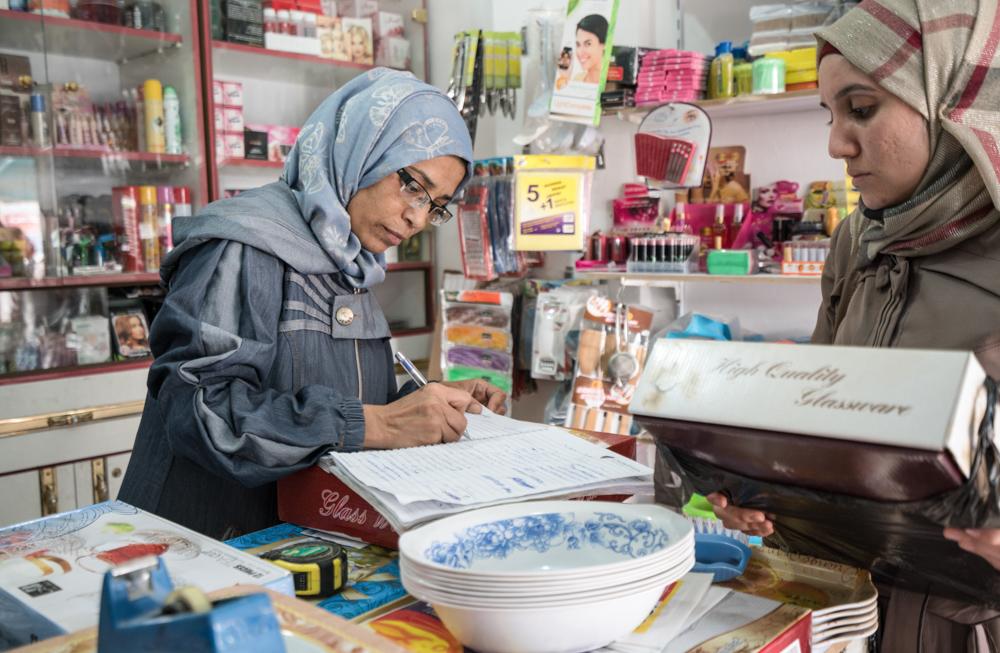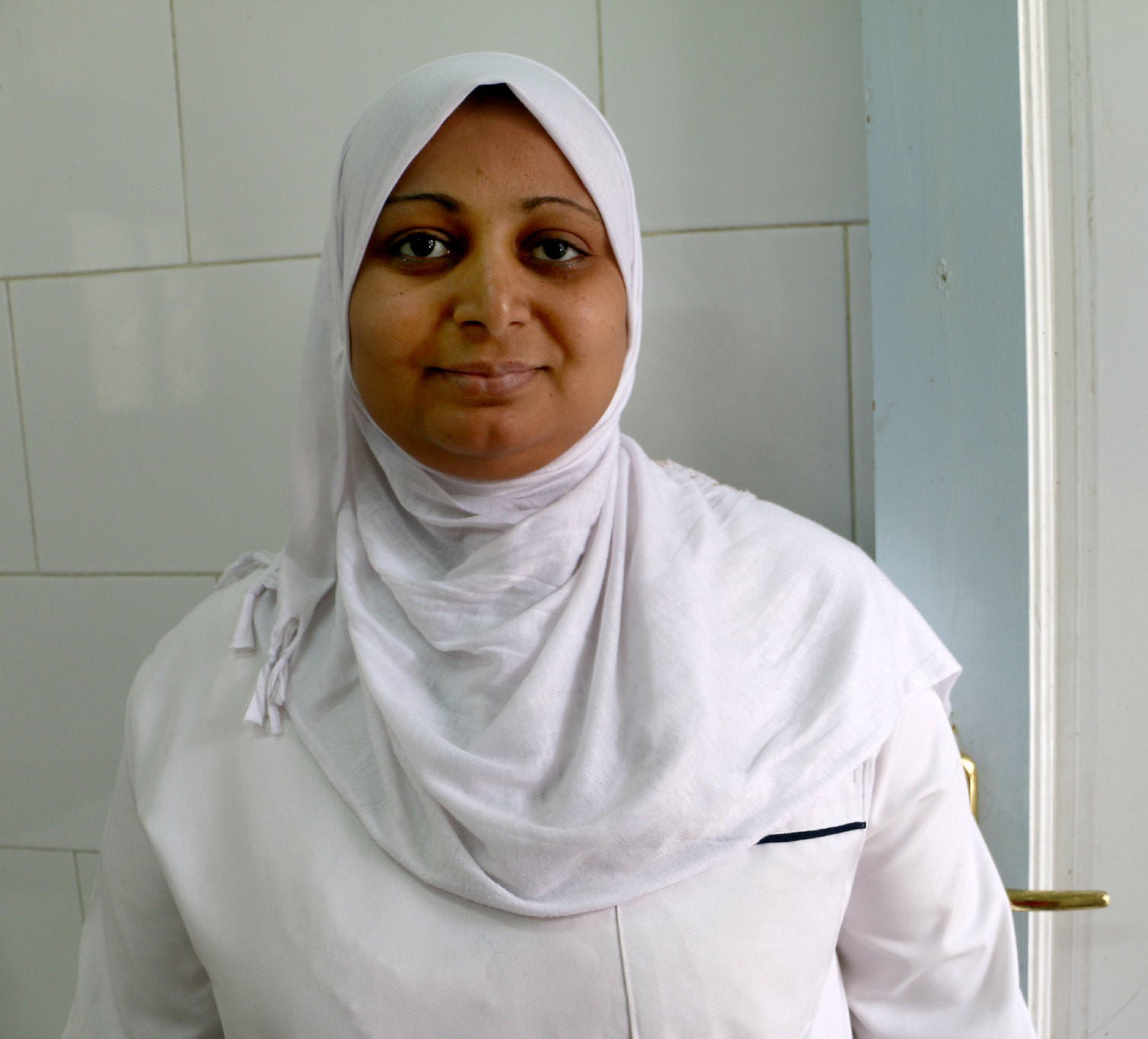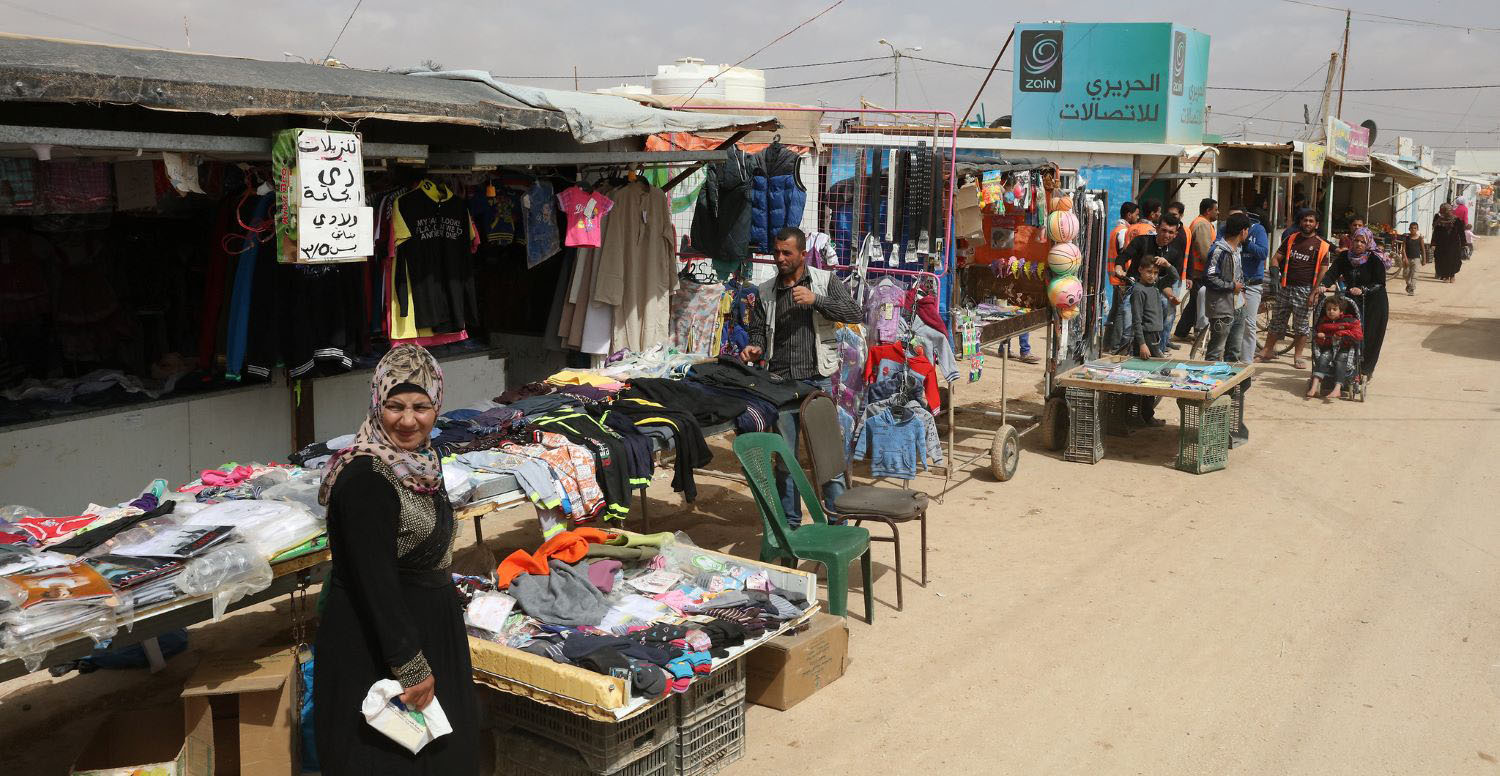
On a recent research trip to Jordan, I (Kate) met a young Syrian woman—we’ll call her Hala. Since fleeing the civil war, Hala has been living as a refugee in one of Jordan’s northern municipalities. With her university plans cut short, she opened a mobile beauty clinic traveling to customers—Syrians and Jordanians—around town for appointments. Jordan does not automatically give refugees the right to work. Under the Jordan Compact, launched at the Supporting Syria and the Region conference in London in February 2016, donors committed $1.8 billion in grants and concessional loans, including to support significant efforts to increase jobs and improve livelihoods for refugees and Jordanians. As one of several parts of the Compact agreement, the Jordanian government began distributing work permits to refugees working in certain sectors.
Hala is not one of the Syrians to have received a permit, and her beauty clinic did not fall into one of those sectors in which refugees are permitted to work.
Her business was cut short when she started receiving blackmail calls, threatening to turn her into Jordanian authorities for working without a permit if she didn’t agree to anonymous demands. Shuttering her first business, Hala next opened a dress shop in town with her brother—housed in what might compare to a one-room bodega on a New York City corner. On a busy street surrounded by other shops, with men working and resting along the sidewalks, Hala’s dress shop was bustling (our interview relocated a few times within the shop to avoid interrupting customers). Yet Hala no longer stays at her shop if her brother is not there. Men in the area have learned her brother’s schedule; once he leaves Hala to run the shop alone, patterns of intimidating harassment begin.
Being a young refugee woman in Jordan and opening her own business—twice—reflects clear resilience and entrepreneurship that belies the rhetoric of refugees as passive aid recipients. But the lack of personal security hinders Hala’s pursuit of a sustainable livelihood. Verbal harassment and intimidation itself is enough to dictate when and whether Hala, as a business owner, can keep her doors open and turn a profit.
Hala’s situation is not unusual—not for Syrian refugees nor their Jordanian hosts. The personal security challenges extend beyond street harassment. The rise in domestic violence among Syrian refugees is well-documented. There was a spike in early marriage among Syrian refugees in Jordan between 2013 and the first quarter of 2014 (when nearly 32 percent of registered marriages were considered early marriages), and the majority of early marriages as of 2014 involved Jordanian girls. Early marriage puts women and girls at greater risk for domestic abuse and undermines their education and earning potential.
Refugees are entering an economy already under pressure. Even before refugee populations are considered, Jordan’s job market faces serious challenges: a 34 percent youth unemployment rate, a total unemployment rate of 13.2 percent (and per Jordanian officials, reaching more than 18 percent in the first quarter of 2017), and a female labor force participation rate of just 14 percent.
The majority of Syrian refugees are unemployed in Jordan, and while many work informally, those who have received formal work permits since 2016 number less than 70,000 (against the 200,000 goal under the Jordan Compact). The barriers to secure, formal employment for refugees are significant. They face discrimination, harassment, and difficulty accessing safe, affordable transportation, among other challenges.
The other side is that many refugees may not want to formalize. The reasons vary depending on who you talk to. Perceptions that refugees refuse formalization out of fear of losing cash assistance or resettlement opportunities are common. Others (refugees and aid workers especially) indicate it may be the hesitancy of Jordanian employers to formalize. Business owners may be unwilling to register either their refugee employees or their business as a whole—which requires they meet the standards and employee care obligations set by the Ministry of Labor.
Jordan is taking steps in the right direction, but policies and programs remain insufficient given the scale of challenges
Creating sustainable livelihoods, providing the right to work and to own a business, and creatively bringing refugees and native businesses into the formal economy can be steps in the right direction.
Jordan hosts more than 650,000 registered Syrian refugees (and unofficial estimates are closer to 1-1.3 million). The number grows when considering the more than 64,000 Iraqi refugees, and nearly 15,000 refugees from Yemen, Sudan, Somalia, and other countries. Jordan is also home to 2.1 million registered Palestinian refugees. Jordan has a per capita refugee population of 89 refugees to every 1,000 Jordanians, a rate second only to Lebanon.
Jordan has time and again adapted to absorb and integrate refugees into the country. But in the face of the ongoing Syria crisis, international support and domestic measures have fallen short of meeting needs. Refugees must be better included into the Jordanian economy, alongside development of the native labor force and greater economic inclusion of Jordanian citizens.
Helping refugees build skills, secure employment, and formalize their businesses can improve productivity and stability for refugees and their host countries
Ensuring refugees have access to livelihoods opportunities is one of the key factors to broader stability. Poverty can exacerbate personal and community-level security risks. When refugees are seen as aid-dependent, it can stoke host perceptions that refugees are stressing local infrastructure and taking jobs from often already impoverished host communities. But when refugees are allowed to contribute meaningfully to the economy, they gain self-reliance and economic security. This lessens the aid burden on the host country, and alleviates pressure on community-wide social tensions. However, this is no easy task in an environment where unemployment may be as high as 18 percent.
But research shows that refugees can provide complementary skills that increase productivity—one empirical research study shows no direct relationship between the arrival of Syrian refugees and the Jordanian labor market. While there may be potential displacement when adding new numbers to a workforce already facing high unemployment, good policies around right to work, including without sector-specific limitations, and right to own a business can mitigate adverse impact and even create new opportunities benefiting Jordanians and Syrians alike.
Beyond job creation, training, and matching initiatives, it is important to support the development of small Jordanian and Syrian owned businesses. In Jordan, micro and small enterprises (MSEs) supply about 40 percent of GDP, and in 2014 made up 98 percent of registered businesses. Policies and programs that help entrepreneurs create, formalize, and grow more of these businesses could be a prime opportunity to develop the local economy. For comparison, Syrian business owners in Turkey have invested almost $334 million into the Turkish economy, with more than 10,000 estimated Syrian-owned businesses in Turkey. This also benefits the host communities: Syrian businesses create jobs, with Syrian business owners employing 9.4 people on average.
CGD research on refugee compacts, conducted in partnership with the International Rescue Committee, shows how donors can play an important role by providing resources and support to both refugees and host communities, helping shift from a zero-sum mentality to one of mutual benefit. The Jordan Compact has been an important turning point in responding to the needs of Syrian refugees and their hosts. Critical avenues for dialogue around policy, programming, and investments have been unlocked.
But there are still areas that require substantial improvement, particularly around policy changes with respect to refugees’ right to work across sectors, right to own a business, and a better business environment to bring (and keep) greater investment to Jordan.
Getting this right will build social cohesion—ultimately critical to regional stability
The livelihoods element is just one of several pillars of the international and host government response. These solutions will require innovative approaches that not only address the livelihoods challenges of refugees, but that also tackle challenges endemic to the Jordanian economy and labor market. Building sustainable self-reliance and economic viability in and of itself can be a security guarantee.
There is much-needed attention on the significant security implications of the conflict. The international community should harness similarly robust focus and resources when looking several layers deeper, addressing other security challenges at the individual level. For the many cases like Hala’s, pursuing a small business is a step forward, but greater protection and sustainable livelihoods opportunities are necessary. Increased international support and partnership is critical to making this a reality.
Disclaimer
CGD blog posts reflect the views of the authors, drawing on prior research and experience in their areas of expertise. CGD is a nonpartisan, independent organization and does not take institutional positions.
Image credit for social media/web: Social media image by UN Women/Christopher Herwig





